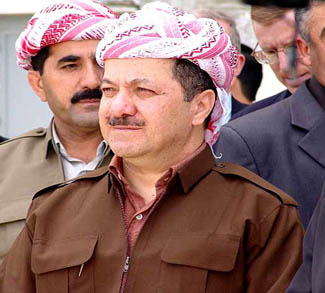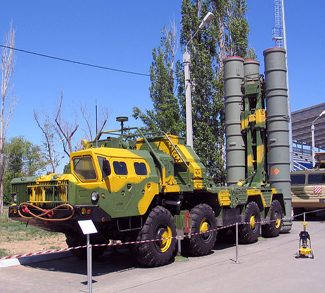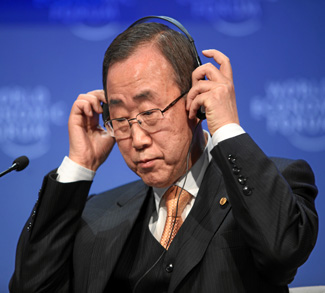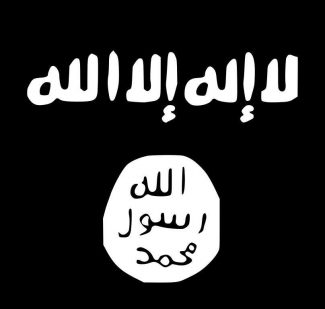Events on the ground in northern Syria and Iraqi Kurdistan suggest that the Syrian conflict is about to become a lot more complex, as it seems a new combatant might be entering the fray: the Kurds.
Local authorities in Iraqi Kurdistan received a shock earlier this week when the normal flow of refugees from northern Syria suddenly spiked to 10,000 people crossing in a single day. Words like “unprecedented” are now being used to describe this surge of mostly Kurdish people escaping from Syria, and NGO and local government workers in Iraqi Kurdistan are struggling to cope with the numbers. Yet even more remarkable than the scale of this refugee influx is the fact that no one seems to know for sure what is behind it.
Recent events in northeastern Syria do allow for an educated guess though. There have been several reports of Islamist attacks on Kurdish towns and militias in the area. During one such attack this week, 17 people were killed in the strategic border town of Ras al-Ain. Other reports, such as a Russia Today article from August 9, detail a more comprehensive terror campaign by Islamists in the Kurdish-majority areas of northeastern Syria, one where targeted rapes, kidnappings, and murders are becoming commonplace. The article provides an individual’s account of an attack on a Kurdish town by brigades from the Free Syria Army, the al-Nusra Front, and perhaps most interestingly – the Islamic State of Iraq and the Levant.
An increase in attacks on local Kurdish populations explains the refugee inflows in Iraqi Kurdistan, but the motivation behind these Islamist attacks remains an open question.
One theory is that the Islamists are resentful of Syrian Kurds because they have largely remained on the sidelines of the fight against the al-Assad government. Adding to the credibility of this interpretation is the fact that the Syrian Kurds currently represent somewhat of an easy target, one that could potentially unite the disparate elements of the insurgency in the wake of a series of military defeats by the Syrian government.
Other theories involve the hand of outside powers such as Turkey. Ankara is believed to be actively supporting the al-Nusra Front, and the goal of preventing Kurdish independence on its borders has been a longstanding fixture of Turkish foreign policy. Thus, some argue that the Turkish government is encouraging the al-Nusra Front to destabilize the Kurdish-majority areas of northeastern Syria in exchange for its continued logistical and military support.
However much the Erdogan government would like to forestall Kurdish independence, it’s hard to imagine the alternative of an anarchic vacuum of Islamist militias on its border would be a palatable price to pay. Yet this is exactly what Saleh Muslim, leader of the Democratic Union Party (PYD) and prominent figure within the Syrian Kurdish community, is alleging to be taking place.
Another interesting theory is that events are now being driven by the Islamic State of Iraq and the Levant, which is an Iraq-based Islamist group that has been expanding its stature and operational capacity over the past year. Recall the spectacular jailbreak that occurred in Iraq in mid-July; at the time, many believed most of the 500-odd freed prisoners to be heading to Syria. The Islamic State claimed responsibility, and the group is in such an ascendance that there were even talks of the al-Nusra Front merging into Islamic State earlier this year, a plan that got a tepid response from the al-Nusra leadership. According to this interpretation, the Islamic State wants to pick a fight with the authorities in Iraqi Kurdistan, expand the instability of the Syrian conflict, and most importantly: bring the stand-off between Baghdad and Erbil to a head, which would have a profoundly destabilizing effect on Iraq.
So far, it looks like a more proactive response from Iraqi Kurdistan, and one that could lay bare the region’s de facto independence, is a definite possibility. President Massoud Barzani has vowed to protect Kurds who are “under threat of death and terrorism,” and pledged to send a delegation to northeastern Syria to investigate the situation. The resources available to the military of Iraqi Kurdistan (the Peshmerga) are substantial. In 2007, the Kurdish government put the Peshmerga at 190,000 fighters, armed with mortars and tanks. Whatever the current number actually is, the Peshmerga has benefitted from several years of US military consulting and training, all guided by the very real prospect of an eventual conflict with Baghdad. If the Peshmerga are deployed in any capacity on the Syrian battlefield, it represents a real possibility of further regional escalation, one that risks pulling Turkey and Iraq deeper into the mire of the Syrian conflict.




